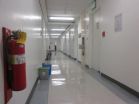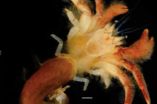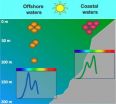(Press-News.org) You may have received CPR training some time ago, but would you remember the proper technique in an emergency? Would you know what to do in the event of an earthquake or a fire? A new UCLA psychology study shows that people often do not recall things they have seen — or at least walked by — hundreds of times.
For the study, 54 people who work in the same building were asked if they knew the location of the fire extinguisher nearest their office. While many of the participants had worked in their offices for years and had passed the bright red extinguishers several times a day, only 13 out of the 54 — 24 percent — knew the location.
When asked to find a fire extinguisher, however, everyone was able to do so within a few seconds; most were surprised they had never noticed them. The researchers found no significant differences between men and women, or between older and younger adults.
"Just because we've seen something many times doesn't mean we remember it or even notice it," said Alan Castel, an associate professor of psychology at UCLA and lead author of the study. "If I asked you to draw the front of a dime or the front of a dollar bill from memory, how well could you do that? You might get some elements right. Do you know who the president is? On the dime, is he facing left or right? Does it say 'In God We Trust' on the front of the dollar or the back? Do you know what else it says? You've seen it so many times, but you probably haven't paid much attention to it."
Castel said that not noticing things isn't necessarily bad, particularly when those things are not important in your daily life. "It might be a good thing not to burden your memory with information that is not relevant to you," he said.
But with safety information, such as knowing where fire extinguishers are or what to do in an emergency, being prepared can, of course, be very useful.
"When you're on an airplane, do you know where the life vest is and what to do in the event of an emergency?" Castel asked. "You've been told many times, but how would you respond under stressful conditions, when there could be smoke and people screaming?"
A few months after being asked the location of the nearest fire extinguisher, the study participants were asked again if they knew where the closest one was. All of them knew.
"We don't notice something if we're attending to something else," Castel said. "Fire extinguishers are bright red and very conspicuous, but we're almost blind to them until they become relevant."
What does this tell us about the importance of training, whether for emergencies or something as common as learning a new computer program?
Castel stresses that making errors during training is useful. As with the fire extinguisher exercise, errors — or simple oversights — can teach us that we don't know something well and need to pay more attention in order to remember it.
"It's good if errors happen during training and not during an event where you need the information," he said. "That's part of the learning process."
The study is published in the journal Attention, Perception, & Psychophysics.
INFORMATION:
Castel's co-authors are Michael Vendetti, a UCLA psychology graduate student, and Keith Holyoak, a UCLA professor of psychology. The study's participants work in UCLA's psychology building.
UCLA is California's largest university, with an enrollment of more than 40,000 undergraduate and graduate students. The UCLA College of Letters and Science and the university's 11 professional schools feature renowned faculty and offer 337 degree programs and majors. UCLA is a national and international leader in the breadth and quality of its academic, research, health care, cultural, continuing education and athletic programs. Six alumni and six faculty have been awarded the Nobel Prize.
For more news, visit the UCLA Newsroom and follow us on Twitter.
Did you see that? How could you miss it?
2012-11-27
ELSE PRESS RELEASES FROM THIS DATE:
Study advances use of stem cells in personalized medicine
2012-11-27
Johns Hopkins researchers report concrete steps in the use of human stem cells to test how diseased cells respond to drugs. Their success highlights a pathway toward faster, cheaper drug development for some genetic illnesses, as well as the ability to pre-test a therapy's safety and effectiveness on cultured clones of a patient's own cells.
The project, described in an article published November 25 on the website of the journal Nature Biotechnology, began several years ago, when Gabsang Lee, D.V.M., Ph.D., an assistant professor at the Johns Hopkins University School ...
Genome decoded: Scientists find clues to more disease-resistant watermelons
2012-11-27
ITHACA, N.Y. – Are juicier, sweeter, more disease-resistant watermelons on the way? An international consortium of more than 60 scientists from the United States, China, and Europe has published the genome sequence of watermelon (Citrullus lanatus) — information that could dramatically accelerate watermelon breeding toward production of a more nutritious, tastier and more resistant fruit. The watermelon genome sequence was published in the Nov. 25 online version of the journal Nature Genetics.
The researchers discovered that a large portion of disease resistance genes ...
Rapid changes in climate don't slow some lizards
2012-11-27
DURHAM, N.C. -- One tropical lizard's tolerance to cold is stiffer than scientists had suspected.
A new study shows that the Puerto Rican lizard Anolis cristatellus has adapted to the cooler winters of Miami. The results also suggest that this lizard may be able to tolerate temperature variations caused by climate change.
"We are not saying that climate change is not a problem for lizards. It is a major problem. However, these findings indicate that the thermal physiology of tropical lizards is more easily altered than previously proposed," said Duke biologist Manuel ...
Metabolic protein launches sugar feast that nurtures brain tumors
2012-11-27
HOUSTON - Researchers at The University of Texas MD Anderson Cancer Center have tracked down a cancer-promoting protein's pathway into the cell nucleus and discovered how, once there, it fires up a glucose metabolism pathway on which brain tumors thrive.
They also found a vital spot along the protein's journey that can be attacked with a type of drug not yet deployed against glioblastoma multiforme, the most common and lethal form of brain cancer. Published online by Nature Cell Biology, the paper further illuminates the importance of pyruvate kinase M2 (PKM2) in cancer ...
American University biologist discovers new crab species
2012-11-27
Areopaguristes tudgei. That's the name of a new species of hermit crab recently discovered on the barrier reef off the coast of Belize by Christopher Tudge, a biology professor at American University in Washington, D.C.
Tudge has been interested in biology his whole life, from boyhood trips to the beach collecting crustaceans in his native Australia, to his undergraduate and PhD work in zoology and biology at the University of Queensland. He has collected specimens all over the world, from Australia to Europe to North and South America.
Until now, he has never had ...
Study links improved consumer welfare to increased prescription drug advertising efforts
2012-11-27
Athens, Ga. – More people are better off thanks to the impact of an influx of direct-to-consumer advertising spending than they would be without those marketing efforts, according to a study recently published by Jayani Jayawardhana, an assistant professor in the University of Georgia College of Public Health.
The multi-year study focused on advertising efforts surrounding cholesterol-reducing prescription medications. Jayawardhana found increased levels of consumer welfare due to direct-to-consumer advertising than when compared to situations without this type of marketing. ...
SwRI team reports Cassini finds a video gamer's paradise at Saturn
2012-11-27
Call it "PAC-MAN, the Sequel." Scientists with NASA's Cassini mission have spotted a second feature shaped like the 1980s video game icon in the Saturn system, this time on the moon Tethys.
The pattern appears in thermal data obtained by Cassini's composite infrared spectrometer, with warmer areas making up the PAC-MAN shape.
"Finding a second PAC-MAN in the Saturn system tells us that the processes creating these 'PAC-MEN' are more widespread than previously thought," said Dr. Carly Howett, the lead author of a recently published paper in the journal Icarus. "The Saturn ...
IU-led team uncovers process for chameleon-like changes in world's most abundant phytoplankton
2012-11-27
An international team of biologists led by Indiana University's David M. Kehoe has identified both the enzyme and molecular mechanism critical for controlling a chameleon-like process that allows one of the world's most abundant ocean phytoplankton, once known as blue-green algae, to maximize light harvesting for photosynthesis.
Responsible for contributing about 20 percent of the total oxygen production on the planet, the cyanobacteria Synechococcus uses its own unique form of a sophisticated response called chromatic acclimation to fine tune the absorption properties ...
Newly insured patients may have trouble finding primary care physicians
2012-11-27
Implementation of the Affordable Care Act – now assured by the re-election of President Obama – is expected to result in up to 50 million currently uninsured Americans acquiring some type of health insurance coverage. But a study by researchers at the Mongan Institute for Health Policy at Massachusetts General Hospital (MGH) finds that a significant percentage of the primary care physicians most likely to care for newly insured patients may be not be accepting new patients. The investigators note that strategies designed to increase and support these "safety-net" physicians ...
UIC scientists find ancient microbes in salty, ice-sealed Antarctic lake
2012-11-27
Shedding light on the limits of life in extreme environments, scientists have discovered abundant and diverse metabolically active bacteria in the brine of an Antarctic lake sealed under more than 65 feet of ice.
The finding, described in this week's issue of the Proceedings of the National Academy of Sciences, is surprising because previous studies indicate that the brine has been isolated from the surface environment -- and external sources of energy -- for at least 2,800 years, according to two of the report's authors, Peter Doran and Fabien Kenig, both professors ...




